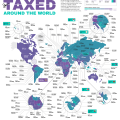A solo 401k is primarily for sole business owners with no employees, though your spouse might contribute if that person receives income from the business. According to an article published in CNN.com, the individual 401k gives you the traditional as well as the Roth option. With a solo 401k, you can save money depending on a pretax basis; the money keeps growing tax-deferred. You will have to pay taxes when you withdraw the sum, which is usually when you retire.
The rules related to individual 401k plans are complicated compared to IRA guidelines; however, there are many advantages of solo 401k accounts. Here are five essential tips to open an account:
1. Eligibility
You should be self-employed if you want to set up a solo 401k. You can be a sole proprietor, contractor, or simply an individual in that business. LLCs, partnerships, S-corporations as well as C-corporations are also included under self-employment. However, the entrepreneur will need to ensure self-employment activity under the business.
2. Deadline for contribution
As a solo 401k is considered a non-employee retirement income security act (ERISA) investment plan, the deadline for contributions is different from that of ERISA plans. When it comes to the contribution deadline for every individual 401k source of the contribution, for instance, employer and employee contributions, it’s the due date of the company’s tax return.
3. Earned Revenue
You will have to provide services to your business. When it comes to net income, it means a partner’s distributive partnership earning a share or loss.Net income doesn’t comprise earnings passed via to the shareholders when it comes to S-corporations.
Assured payments to limited partners are considered as net income from a self-employment business provided; they’re remunerated for services related to the partnership. Again, distributions of additional earnings or loss to limited partners are not considered net income from a self-employed business. To clarify your doubts about earned income, you can visit solo401k.com.
4. Employer Identification Number
The individual 401k is a distinct entity and so, you need to obtain a unique employee identification number (EIN) to set up a solo 401k retirement plan. The EIN is also needed to open the funding account, which means the financial institution or brokerage account. This is essential for reporting tax and while making substitute investments including cryptocurrency, real estate, private placements, precious metals, and promissory notes.
5. Financial institution or brokerage account
For opening a solo 401k, you can’t use your personal bank or for that matter business account to keep the funds. You need to have an account with a financial institution, bank, and even a brokerage account. You may even have both a bank as well as a brokerage account.
Conclusion
When thinking of opening a solo 401k account, you should consult with the provider and consider whether you qualify to open an individual 401k. You can even talk to friends or a sole proprietor who have a solo 401k plan. Discuss contribution plans and the amount you should contribute to reap the maximum benefits of the plan.






